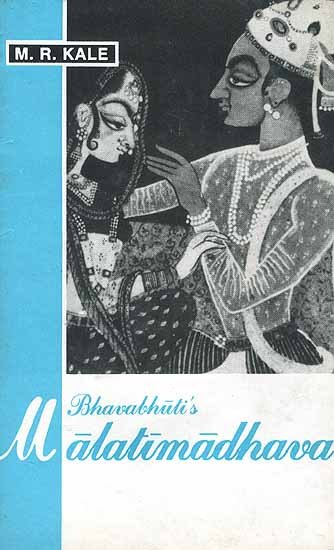Malatimadhava (study)
by Jintu Moni Dutta | 2017 | 52,468 words | ISBN-10: 8120813057 | ISBN-13: 9788120813052
This page relates ‘Principal Sentiment of the Malatimadhava’ from the English study on the Malatimadhava of Bhavabhuti:—A Prakarana type of Drama in ten acts revolving around the love-story of Malati (from Padmāvatī) and Madhava (from Vidarbha). This study discusses the history of its author and the literary, social, religious, historical and cultural aspects of the Malatimadhava.
Part 1.4 - The Principal Sentiment of the Mālatīmādhava
From the above discussion it is found that in the Mālatīmādhava, Bhavabhūti has skilfully delineated various kinds of sentiments among which Śṛṅgāra or Erotic sentiment finds great importance.It has been already stated that in the Prakaraṇa type of rūpaka the principal sentiment should be Śṛṅgāra or Erotic while the other sentiments are delineated as subordinate sentiments.In this case, it has been noticed that Bhavabhūti has strictly followed the rule.
As the story of Mālatīmādhava goes, it shows that the union of Mālatī and Mādhava is the main theme of this Prakaraṇa. Here Bhavabhūti puts considerable verses which suggest the delineation of Śṛṅgāra.In some acts Bhavabhūti depicts love of Mālatī and Mādhava in union while in the other acts he depicts love in separation. Thus, Bhavabhūti has delineated Śṛṅgāra rasa as the principal sentiment.The Śṛṅgāra or Erotic sentiment arises in all the acts.Bhavabhūti has delineated both type of Śṛṅgāra viz., Sambhoga and Vipralambha śṛṅgāra. In the depiction of love affair of Mālatī and Mādhava, he beautifully delineates Sambhoga śṛṅgāra.As for instance in the 2nd act it has been known from the speech of Kāmandakī that Mālatī has enjoyed the union with her lover pictured by her mind.[1] As a consequence of influence of love many changes manifest in Mālatī where Saṃbhoga śṛṅgāra is delineated.[2]
Again there is found the love in separation i.e. Vipralambha śṛṅgāra in the description of the pangs of separation of Mādhava from Mālatī.As for instance in the 9th act Mādhava says that his heart anguishes intensely, bursts but does not split in twain, his languid frame suffers stupefaction but parts not with consciousness, the fire inflames within the body but does not reduce it to ashes entirely, fate strikes cutting at the vital parts but cuts not off life on account of not getting Mālatī.[3] This is a beautiful example of Vipralambha śṛṅgāra. As the story of the Malatimadhava centres round the love of Malati, the heroine with Madhava, the hero and also their union at the end, so, the Śṛṅgāra rasa remains as the predominant one in this Prakaraṇa.
Footnotes and references:
[1]:
niyatamanayā saṃkalpanirmitaḥ priyasamāgamonubhūyate /
Mālatīmādhava,II.p.53
[2]:
